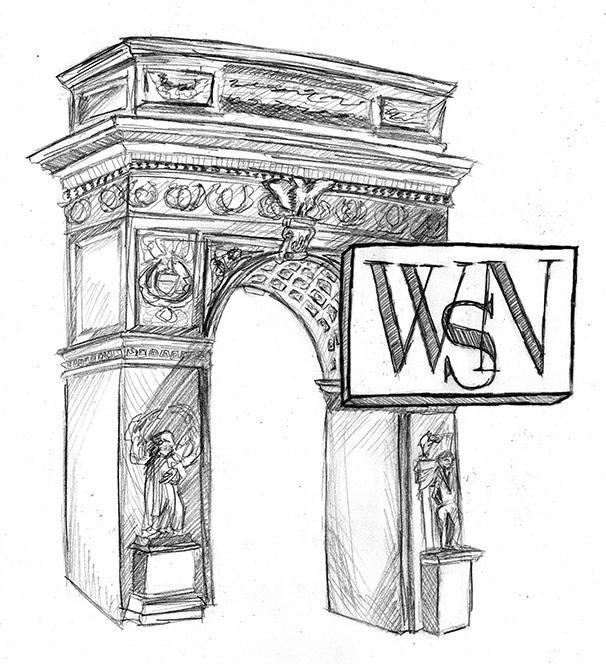As NYU students, we would hope for our administration to listen to us. Since NYU is the largest private university in the U.S., it has a particular responsibility to listen to all of its students and take our many concerns into consideration. In a May 2019 interview, WSN asked NYU President Andrew Hamilton if NYU should be a democratic institution. He flatly said “no.” In the same breath, he expanded, saying “I think NYU is an institution that has a number of different ways in which the views of the community are expressed and taken into account.” He went on to mention the role of student government and town halls in getting input from students. But while the university might advertise these methods as effective and helpful, clearly this is not enough. The views of NYU’s enormous community are frequently expressed, like Hamilton said, but they are rarely taken into account.
In a fundamentally undemocratic institution, is anyone really listening?
The highest authority at the university is the Board of Trustees, which has frequently disregarded student interests. One of the ways students can formally change NYU policy is through resolutions. These go through the University Senate — a mix of students and faculty — and is finally brought to Board for approval, which rarely happens. Just last summer, the trustees vetoed three resolutions for student representation on the Board — the fourth resolution they’ve vetoed in the last three years. Instead, the trustees proposed other changes: more meetings with student leaders, an email address to which individuals can direct their concerns and the publication of their meetings’ minutes.
These initiatives were less than meaningful, especially considering the trustees have gone back on their initial compromise, promising to release summary reports of the meetings, as opposed to minutes. To date, no summary report of any Board of Trustees meeting has been made public. WSN has also had trouble reaching out to the Board in the past. The email provided by the Board prompts a response from the Office of Public Affairs instead. It seems that despite promises of change, the Board’s actions speak louder than their words — or lack thereof.
While there is no question about who makes the final decision at NYU, the administration touts recent town halls as another way any student can voice their concerns. Contrary to the university’s claims, town halls have been anything but productive. Despite their initial success, town halls have quickly devolved into tense and controlled social interactions. The meetings have been criticized by students for their lack of substance and the administration’s tendency to dodge questions. Hamilton himself has questioned the usefulness of the meetings. If the Board doesn’t take student resolutions seriously and the administration won’t answer students’ questions truthfully, what are students supposed to do?
When the university refuses to recognize student concerns through university channels, they leave no choice but for students to protest. As a result, there is a strong history of protest at NYU — one that is only matched by the strength of university retaliation. Just last year, the university threatened several student protestors from the Incarceration to Education Coalition with suspension and alerted their parents. The university also threatened to remove their financial aid. This is the third time in the last three years that the university has threatened student protestors. While it is expected that protesting on school grounds can be cause for some form of punishment, the university’s treatment of protestors goes beyond what is fair or necessary.
Despite this hostile environment, the university has occasionally acquiesced to protest demands. In the summer of 2016, the university agreed to remove an application question about the criminal background of applicants. However, this concession is the exception and far from the norm. This decision came only after protests from IEC, and the university’s treatment of the protestors showed its true colors — IEC protestors were still threatened by the administration.
NYU is always quick to act when its inaction becomes national news. When a tweet about an anti-black incident at the Silver School of Social Work went viral, Silver responded with a statement acknowledging racism at the school almost immediately, and within a month had rolled out a comprehensive plan to hire an external consultant and add mandatory anti-racism training sessions for students and faculty. When NYU’s former dining provider, Aramark, came under fire for a failed health inspection at Lipton Dining Hall and a blatantly racist meal served in honor of Black History Month, the administration quickly began evaluating replacements. Aramark’s 42-year tenure at NYU ended this past summer, four years before its contract was set to expire.
It seems that the only way to not only gain the administration’s attention, but also leave them no choice but to act in your favor, is to force them into the headlines. But this is not the conversation that Hamilton promised; this is a forced, uncomfortable reckoning, and though it may be effective, it’s not a form of communication.
A version of this article appeared in the Tuesday, Sept. 3, 2019 print edition. Email the Editorial Board at [email protected].























































































































































